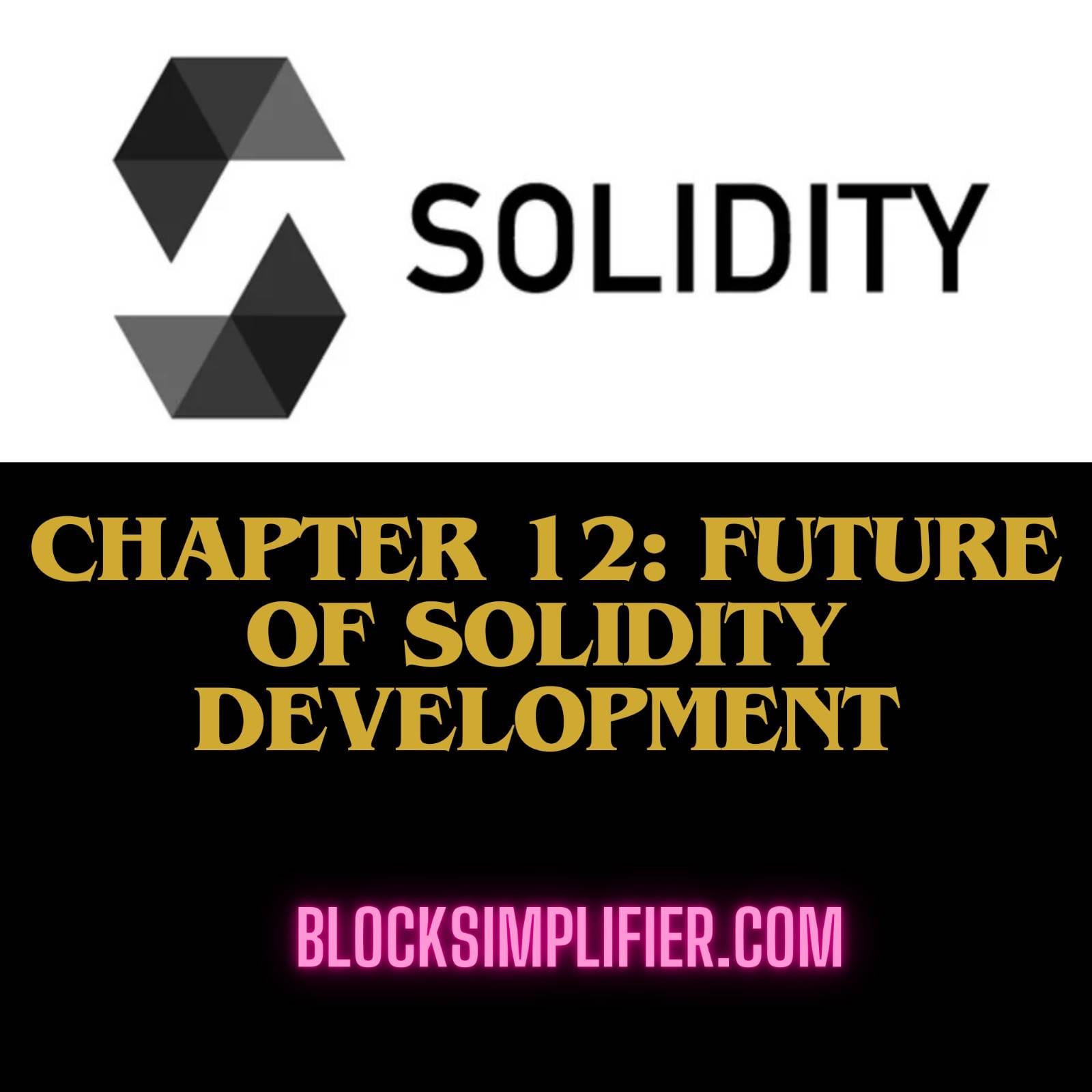
Solidity has been the main programming language for developing clever contracts on Ethereum and different blockchains. As the blockchain atmosphere evolves, so does Solidity. This bankruptcy dives into what the future holds for Solidity, which include upcoming capabilities, contemporary improvement developments, and emerging alternatives like Vyper and Rust.
Table of Contents
New Features in Solidity
The Solidity development crew always introduces updates that improve the language’s functionality, protection, and overall performance. Let’s explore a number of the key capabilities expected in upcoming variations:
- EIP-4337: Account Abstraction
Account Abstraction aims to revolutionize user interactions on Ethereum by enabling custom smart contract wallets instead of standard Ethereum accounts. This enhancement will simplify complex interactions and improve the overall user experience. - Enhanced Solidity Optimizer
Gas efficiency remains a top priority for Solidity developers. The ongoing improvements to the optimizer focus on reducing bytecode size, enhancing execution efficiency, and cutting transaction costs. - Introduction of New Data Structures
Upcoming Solidity versions will include advanced data structures, such as improved storage arrays and mappings. These updates will help developers design more complex applications without significantly increasing gas fees. - Improved Error Handling
Robust error-handling mechanisms are on the horizon, aiming to streamline debugging and exception management during contract execution. This improvement will make Solidity development more dependable. - Native Support for Zero-Knowledge Proofs
Zero-Knowledge Proofs (ZKPs) are getting pivotal in privateness and scalability solutions. Solidity’s planned native help for ZKPs will allow builders to create extra steady, privateness-targeted clever contracts.
Trends in Solidity and Ethereum Development
The trajectory of Solidity is intertwined with Ethereum’s evolution. Below are some significant trends shaping the future:
- Layer 2 Scaling Solutions
- Decentralized Finance (DeFi) Innovations
- The Rise of NFTs and Digital Assets
- Enhanced Privacy Protocols
- Transition to Ethereum 2.0
Exploring Alternatives: Vyper and Rust
While Solidity dominates the Ethereum environment, other languages like Vyper and Rust are gaining traction:
- Vyper
Vyper is a Python-inspired language designed for simplicity and security. Its minimalist approach makes code easier to audit, reducing vulnerabilities. Though less mature than Solidity, Vyper is becoming a viable choice for developers prioritizing formal verification. - Rust (Solana)
Rust powers clever contracts on the Solana blockchain. Known for its velocity, reminiscence protection, and performance, Rust excels in constructing high-throughput packages. Solana’s low expenses and scalability make it an attractive opportunity for builders looking for performance.
Conclusion
Solidity remains at the coronary heart of Ethereum’s success, and its future is shiny. Upcoming improvements, such as native Zero-Knowledge Proofs, stronger Layer 2 assist, and Ethereum 2.Zero compatibility, promise interesting possibilities for developers. At the equal time, options like Vyper and Rust provide precise blessings for particular use cases.
As the Ethereum atmosphere grows, Solidity will hold to adapt, empowering builders to create groundbreaking decentralized packages. By staying updated on those improvements and exploring alternatives, developers can harness the whole ability of blockchain era.
FAQ
Q1: Will Solidity hold to dominate clever agreement improvement?
Yes, Solidity is expected to remain the leading language for Ethereum smart contracts. However, alternatives like Vyper and Rust are gaining attention for niche applications and could see increased adoption.
Q2: What improvements can we expect in future Solidity versions?
New features will include Zero-Knowledge Proofs support, better error handling, optimized gas efficiency, and advanced data structures. The integration of EIP-4337 for account abstraction is another significant development.
Q3: Why choose Rust over Solidity?
Rust offers unmatched performance and safety, making it ideal for complex, high-throughput applications like those on Solana. Its low-level control provides developers with greater flexibility.
Q4: How will Ethereum 2.0 affect Solidity development?
Ethereum 2.0 will improve scalability and decrease gas charges, enabling builders to create greater efficient smart contracts. Developers will even need to conform to the new Proof of Stake consensus version.







2 thoughts on “Chapter 12: Future of Solidity development”